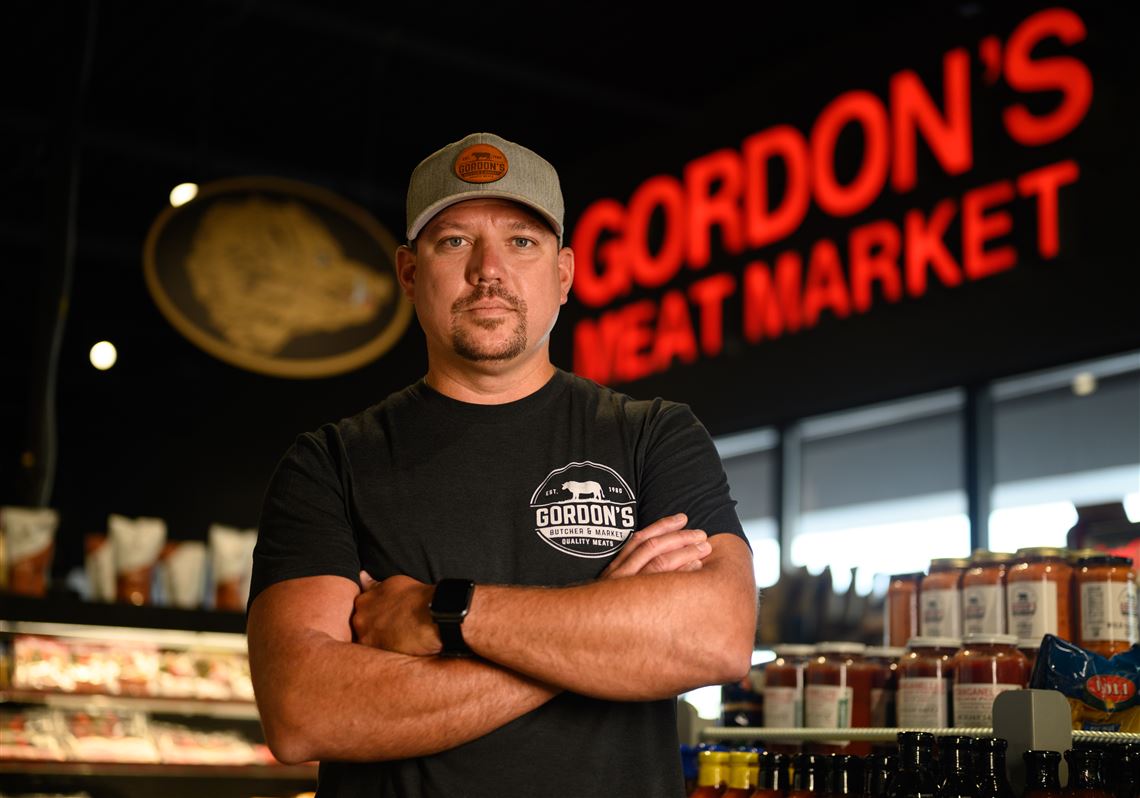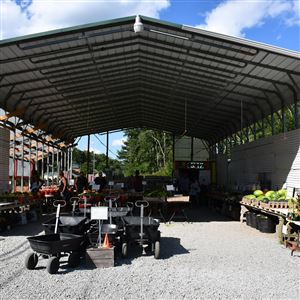WILKES-BARRE, Pa. — After 22 years working as an IT professional for Verizon Wireless, Marcy O’Donnell left to start a new career in the medical field — specifically her husband’s optometry practice here in Luzerne County — two years ahead of the pandemic.
Ms. O’Donnell, a natural communicator, says she really enjoys interacting with the patients and the staff, but the past two years — from pandemic shutdowns to navigating skyrocketing inflation and stubborn supply issues — have been hard for the family practice.
When the practice reopened after a ten-week COVID lockdown, the time and money that went into keeping up with protocols became a separate full-time job. They were also limited to seeing one patient at a time every hour. Since then, Ms. O’Donnell said, they’ve done everything they could think of just to keep the business and practice open: “We weren’t going to just sit there and go into apathy over it; we really pushed hard to make sure that we could still service patients and do everything right.”
Ms. O’Donnell said things still have not returned to normal. The setbacks of the pandemic have morphed into setbacks created by inflation and the recession. “Definitely everything is much more expensive — from frames to contact lenses — but there’s also the never-ending backorders to get these products.”
Ms. O’Donnell says not voting is not an option in her family. She and her husband Brian are planning to cast a ballot this November. “I guess we call it the super-voters, because my husband and his family, they were in politics for the longest time,” she said.
Her father-in-law, Tom O’Donnell, served on many local boards and authorities, was active in the Democratic Party and once ran for Congress.
Ms. O’Donnell says she is casting her vote based on who will get to the root of inflation and address rising crime rates, and who won’t turn a blind eye to how Fentanyl is pouring into America’s cities and suburbs.
“I have never voted straight party ever in my lifetime,” she said. “I’ve voted Democratic. I’ve voted Republican. I voted at one point for a Libertarian. I just vote based on what I think or what I feel at that point in time — who I think is the best for the country.”
People like Marcy O’Donnell will tell us more than any poll about what may be in store on midterm election day.
For those prognosticating about Pennsylvania, the concerns and sentiments of voters here in Luzerne County — as well as in Erie County and in the suburbs of Allegheny County — are the most important in determining which way the state goes in the race for control of the U.S. Senate.
Luzerne County famously flipped Republican in 2016 after decades of supporting Democrats for president — and hasn’t looked back since. It also gave Tom Wolf a win in his 2018 reelection and Attorney General Josh Shapiro a win in his 2020 reelection.
What happens here matters.
Portraits of voters offer a peek into the mood of electorally significant places. They don’t tell the whole story, but they do offer a glimpse into voter sentiment — and the sense of place, community and opportunity that will drive their decision, as opposed to what happens on social media.
Every city should be so lucky as to have a Kyle Bohrer — especially post-industrial cities like Erie, whose economy has had a bit of a bad run in the past few decades. This fourth-generation Erie resident’s motto references the city’s maritime history: “Don’t give up the ship.”
Mr. Bohrer has owned franchises of a logistics company called Unishippers since 2007. “That’s actually the job that pays the bills, he said. “Then I bought a meat market three years ago: Gordon’s Butcher and Market.”
Gordon’s wasn’t just any butcher shop: It was an icon, a mainstay, the heart of the community. For Mr. Bohrer, the purchase was sentimental and has become a labor of love.
When he bought it in October 2019, it was a 2,000-square-foot 50-year-old dilapidated but beloved butcher shop. “It was a neighborhood favorite, and I didn’t want see it go anywhere,” he said.
The father of three sold a chunk of his Unishippers group that year and went all in: Today it’s a 7,500 square foot, top-of-the-line meat market — with a restaurant called “Firestone,” a bar, a six pack and craft beer shop and a wine store called Paris’s Cap and Cork, all located in one building.
Mr. Bohrer — like most Pennsylvanians — has never lived anywhere else. He is rooted to his community and, despite Erie’s challenges, he wants to be part of making it better for the next generation. That sentiment is what will drive his vote come November, along with the impact inflation has had on his business, and his inability to find workers.
He considers his worldview moderate and pragmatic. His vote, he says, will reflect that, as well as the impact all of these things have had on his family and his community’s life.
“Prices for everything are still very high. Even though they’ve stopped climbing for the moment, they haven’t come down. The labor problem and people problem are still there. And the other thing people don’t talk about are our 401k’s — my father got beat up so bad this year in the market that he’s having to stay working for another year or so. He is going to keep going to hopefully see it turn around a little bit more, but yeah, it’s been a little bit, uneasy feeling, for sure,” he said.
Erie, like Luzerne, was a swing county in 2016. Voters here narrowly gave Donald Trump their support, then four years later, narrowly supported Joe Biden. Last year, for the first time in decades, they elected a Republican for county executive.
Mr. Bohrer, 41, says when reporters descend upon his county to cover elections, they always focus on the used-to-be’s of their days as an industrial powerhouse. “They miss how beautiful Erie is — the lakefront, the tourism, the affordable living and the growth of our economy based on higher education and state of the art hospitals,” he explained.
In Allegheny County, though, Democrats have ruled the roost. It’s hard to find anyone who remembers when it ever elected a Republican, outside of the 2000 county executive race. In 2020 it was crucial — along with Montgomery County in the East — in putting Mr. Biden over the top.
It was Mr. Biden’s success in the suburbs that solidified his win, which makes talking to suburban Allegheny County voters so important. Chris Scott of Plum was one of those voters.
Mr. Scott, a Plum Borough native who owns a landscaping and excavation company, said his career choice was formed when he was six years old, after his father passed and a family friend became a mentor who saw a talent in him at a young age.
“I was the last of seven, so I had to grow up working. At a young age, I was fortunate to meet . . . sorry, I’m tearing up a little bit here,” he said, wiping back tears, “but I was fortunate to meet a gentleman that took me under his wing, and that’s what he did — he encouraged me to do what I was doing because I did it well.”
It is clear Mr. Scott works with his hands — and back. It is also clear that family is the very center of his life. “Everything I do is for them,” he said. “It is to make sure I leave the world a better place for them and that I show them the value of hard work.”
An operating engineer and a member their Local 66, Mr. Scott is one to cut to the chase no matter who he is talking to: “Here is how I vote — my family first, my community second and my country third.”
Rather that asking someone what party they are in or who they are voting for, we should ask them what the most important things are for them this election season. It may not be scientific, but it offers a glimpse into the context and complexities that go into their decision. And it tells us more about how people are actually feeling than the raw numbers do.
North Side native Salena Zito is a national political reporter for The Washington Examiner, a New York Post columnist and co-author of “The Great Revolt”: zito.salena@gmail.com.
First Published: August 28, 2022, 4:00 a.m.


















